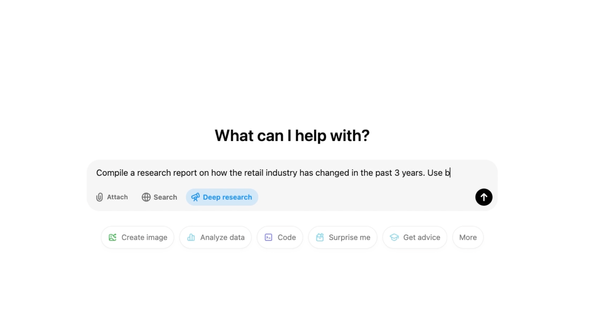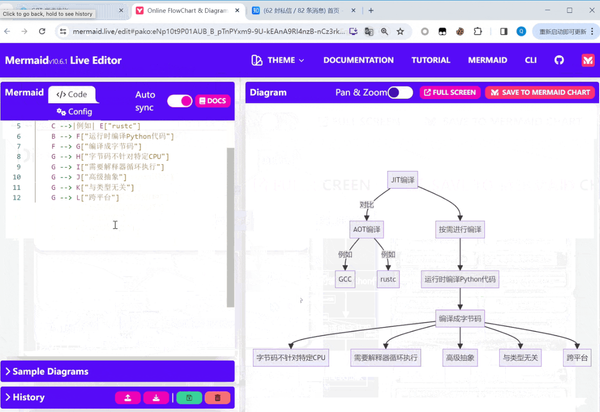The Growing Importance of Data Science: A Comprehensive Guide
Table of Content
In today’s rapidly evolving technological landscape, data is at the core of many critical business decisions. With the rise of big data, artificial intelligence, and machine learning, data science has become an essential discipline that is transforming industries and reshaping the way businesses operate.
Data science involves using scientific methods, algorithms, and systems to extract insights from structured and unstructured data, and it is now one of the most sought-after skills in the global job market.
In this article, we will explore what data science is, its key components, applications, career opportunities, and why taking a Data Science course can be an effective way to get started in this field.
What is Data Science?
Data science is an interdisciplinary field that combines techniques from statistics, computer science, mathematics, and domain-specific knowledge to analyze and interpret large datasets.
The goal is to extract meaningful insights, patterns, and trends that can be used to support decision-making, predict future trends, and automate processes.
At its core, data science involves:
- Data Collection: Gathering data from different sources such as databases, spreadsheets, or external APIs.
- Data Cleaning: Removing inaccuracies or inconsistencies in data to ensure high-quality datasets.
- Exploratory Data Analysis (EDA): Examining data visually or through statistics to understand its structure and relationships.
- Modeling: Using algorithms and machine learning models to uncover patterns and make predictions.
- Interpretation and Reporting: Converting complex data findings into actionable insights through visualizations and reports.
The combination of these processes helps organizations make data-driven decisions, improving everything from customer experience to operational efficiency.
Key Components of Data Science
Data science is a broad field that incorporates multiple disciplines. The major components that make up data science include:
1. Data Exploration and Preprocessing
Before any analysis can begin, data scientists need to explore the data to understand its characteristics. This involves looking for missing values, outliers, or errors that could distort the analysis.
Data preprocessing ensures that the dataset is cleaned and transformed into a suitable format for analysis. Common techniques include normalization, handling missing data, and encoding categorical variables.
2. Statistical Analysis
Statistical methods play a crucial role in data science by helping data scientists summarize and interpret data. They use techniques such as hypothesis testing, regression analysis, and Bayesian inference to extract meaningful insights.
These methods help in identifying relationships, testing assumptions, and validating models.
3. Machine Learning
Machine learning is a subset of artificial intelligence (AI) that allows computers to learn from data and make decisions without being explicitly programmed. In data science, machine learning algorithms such as decision trees, random forests, neural networks, and support vector machines are used to develop predictive models that can forecast outcomes based on historical data.
4. Big Data Technologies
Data scientists work with vast amounts of data that can be difficult to process using traditional methods. Big data technologies such as Hadoop, Spark, and NoSQL databases enable the storage and processing of large datasets across distributed systems. These tools ensure that data scientists can efficiently analyze big data in a scalable manner.
5. Data Visualization
Data visualization is an essential part of data science because it helps communicate complex findings in a clear and understandable way.
Tools like Tableau, Power BI, and Python libraries such as Matplotlib and Seaborn enable data scientists to create charts, graphs, and dashboards that make the data accessible to stakeholders and decision-makers.
Applications of Data Science
Data science is applied in various fields to solve complex problems, improve processes, and enhance business operations. Some of the most impactful applications include:
1. Healthcare
In healthcare, data science is being used to improve patient outcomes, optimize medical treatments, and predict disease outbreaks. By analyzing medical records, sensor data, and clinical trials, data scientists can help healthcare providers offer personalized treatment plans, improve drug development, and enhance patient care.
Predictive models also help in identifying high-risk patients and enabling early interventions.
2. Finance
In the finance industry, data science is used for fraud detection, algorithmic trading, credit scoring, and risk assessment.
By analyzing historical financial data, financial institutions can predict market trends, assess the risk of loans, and detect suspicious activities. Data science has also revolutionized investment strategies, helping investors make smarter decisions.
3. E-commerce
Data science plays a critical role in e-commerce by analyzing customer behavior, optimizing pricing strategies, and personalizing recommendations.
By studying customer interactions with websites or mobile apps, e-commerce businesses can understand preferences, predict purchasing behavior, and create targeted marketing campaigns to increase conversion rates.
4. Marketing
In marketing, data science is used to analyze consumer behavior, segment audiences, and optimize advertising campaigns. Machine learning models help marketers predict customer lifetime value, personalize advertisements, and improve the return on investment for marketing activities.
Data-driven insights also help businesses optimize their pricing strategies and promotional offers.
5. Manufacturing
In manufacturing, data science helps improve operational efficiency by analyzing production data, predicting equipment failures, and optimizing supply chain management.
By using predictive maintenance, manufacturers can reduce downtime and extend the lifespan of machinery. Data science also enables the optimization of inventory management and demand forecasting.
Career Opportunities in Data Science
Data science is a rapidly growing field, and the demand for skilled professionals continues to rise. Below are some of the most common career opportunities in data science:
1. Data Scientist
A data scientist is responsible for designing and implementing machine learning models, conducting statistical analysis, and developing algorithms to extract insights from data.
They work closely with business stakeholders to understand their needs and develop data-driven solutions. Data scientists typically require expertise in programming languages such as Python or R, as well as a strong understanding of statistical methods and machine learning.
2. Data Analyst
Data analysts focus on analyzing and interpreting data to generate actionable insights. They use tools like Excel, SQL, and visualization software such as Tableau to create reports and dashboards. Data analysts often work with business units to help them understand data trends and inform decision-making. While data analysts may not build complex models like data scientists, they are integral in transforming raw data into insights.
3. Machine Learning Engineer
Machine learning engineers design and implement machine learning algorithms that enable computers to make predictions and decisions. They build, test, and optimize models using various machine learning techniques, ensuring they are scalable and efficient. A machine learning engineer typically requires a strong background in computer science and mathematics.
4. Data Engineer
Data engineers focus on the architecture and infrastructure needed to collect, process, and store large datasets. They design and maintain data pipelines and databases that ensure data is clean, organized, and accessible for analysis. Data engineers work closely with data scientists and analysts to ensure the data is available in the right format and at the right time.
5. Business Intelligence Analyst
Business intelligence (BI) analysts use data to help businesses make strategic decisions. They work with BI tools like Power BI, Tableau, or QlikView to create visualizations and dashboards that summarize key performance indicators (KPIs). BI analysts provide insights into business operations, customer behavior, and market trends.
How a Data Science Course Can Benefit You
A Data Science course can equip you with the skills and knowledge needed to succeed in the data science field. These courses typically cover the following key areas:
- Programming languages: Learning languages such as Python or R, which are essential for data manipulation and analysis.
- Statistical analysis: Understanding the fundamentals of statistics to interpret data accurately.
- Machine learning: Gaining proficiency in machine learning algorithms and techniques for predictive modeling.
- Data visualization: Learning to present data findings clearly through visualizations using tools like Tableau or Power BI.
- Big data technologies: Understanding how to handle and analyze large datasets using tools like Hadoop and Spark.
By completing a data science course, you will gain practical experience working with real-world datasets and learn how to apply your knowledge in professional settings. This can help you land a rewarding job in the data science field and make you an asset to any organization looking to leverage data for business success.
Conclusion
Data science is transforming industries and revolutionizing how businesses make decisions. By analyzing and interpreting data, organizations can uncover insights, predict future trends, and make data-driven choices that drive success. As the demand for data professionals continues to grow, taking a Data Science course can equip you with the skills needed to thrive in this exciting and lucrative field. Whether you are looking to start a new career or advance in your current role, data science offers vast opportunities for growth and innovation.











